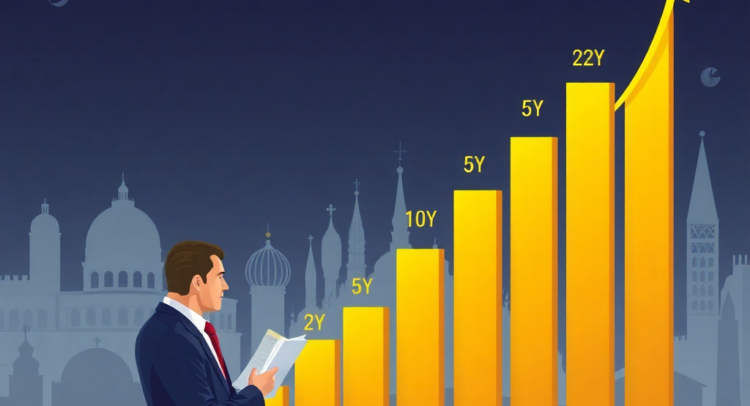Bond investors may be looking at a rare window to lock in high yields, according to Rick Rieder, BlackRock’s (BLK) Chief Investment Officer of Global Fixed Income. In an interview with CNBC, Rieder said current income levels in the bond market represent a “generational opportunity” following decades of suppressed yields.
Claim 50% Off TipRanks Premium
- Unlock hedge fund-level data and powerful investing tools for smarter, sharper decisions
- Stay ahead of the market with the latest news and analysis and maximize your portfolio's potential
Bonds Regain Portfolio Relevance
After years of near-zero interest rates, bond yields surged in 2022 and have remained elevated since then. Rieder believes this income potential is especially valuable now that bond duration has lost some of its traditional role as a hedge against equity declines. “Delivering consistently high coupons to global portfolios can serve as a bulwark against equity market drawdowns,” he noted in BlackRock’s mid-year outlook.
Importantly, Rieder doesn’t think investors need to take excessive risk to capture this income. Many companies reduced debt during the post-COVID period, improving credit fundamentals across the board. He also expects the opportunity may not last long. As the current wave of technology innovation improves productivity and lowers inflation, he anticipates interest rates will fall in the longer term.
Rieder sees value across various parts of the bond market. He favors the front and belly of the curve, where yields are still attractive and rate risk is more manageable. In his role as portfolio manager of the iShares Flexible Income Active ETF (BINC), he has increased exposure to securitized assets, which now comprise 35% of the fund. This includes commercial mortgage-backed securities and non-agency MBS. Investment-grade corporate bonds, by contrast, now make up just 7% of the ETF.
Extra Yield from Europe Exposure
European credit is another area of focus. Rieder continues to like sovereign bonds from Spain and Italy, citing strong yields and limited supply concerns. For U.S. dollar-based investors, he points out an added benefit from cross-currency swaps, which currently provide an extra 2% to 2.5% yield pickup when lending in Europe.
Looking ahead, Rieder is optimistic about the second half of 2025, particularly the final quarter, as corporate investment is expected to rebound potentially. He said many CEOs are waiting for clarity on trade policies and tariffs, with key deadlines approaching in early July. At the same time, he cautions that rising U.S. deficits remain a concern for long-duration bonds.


















